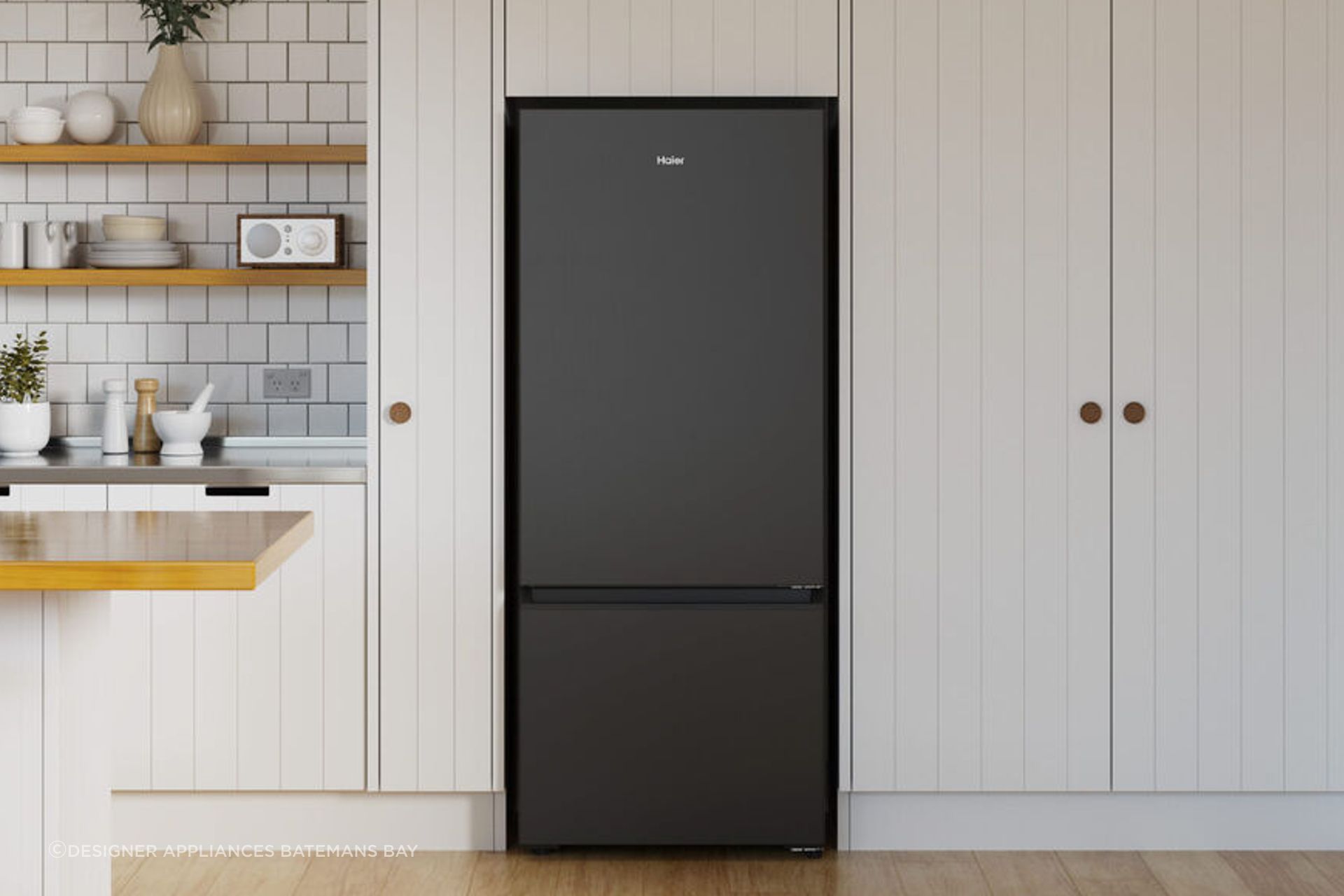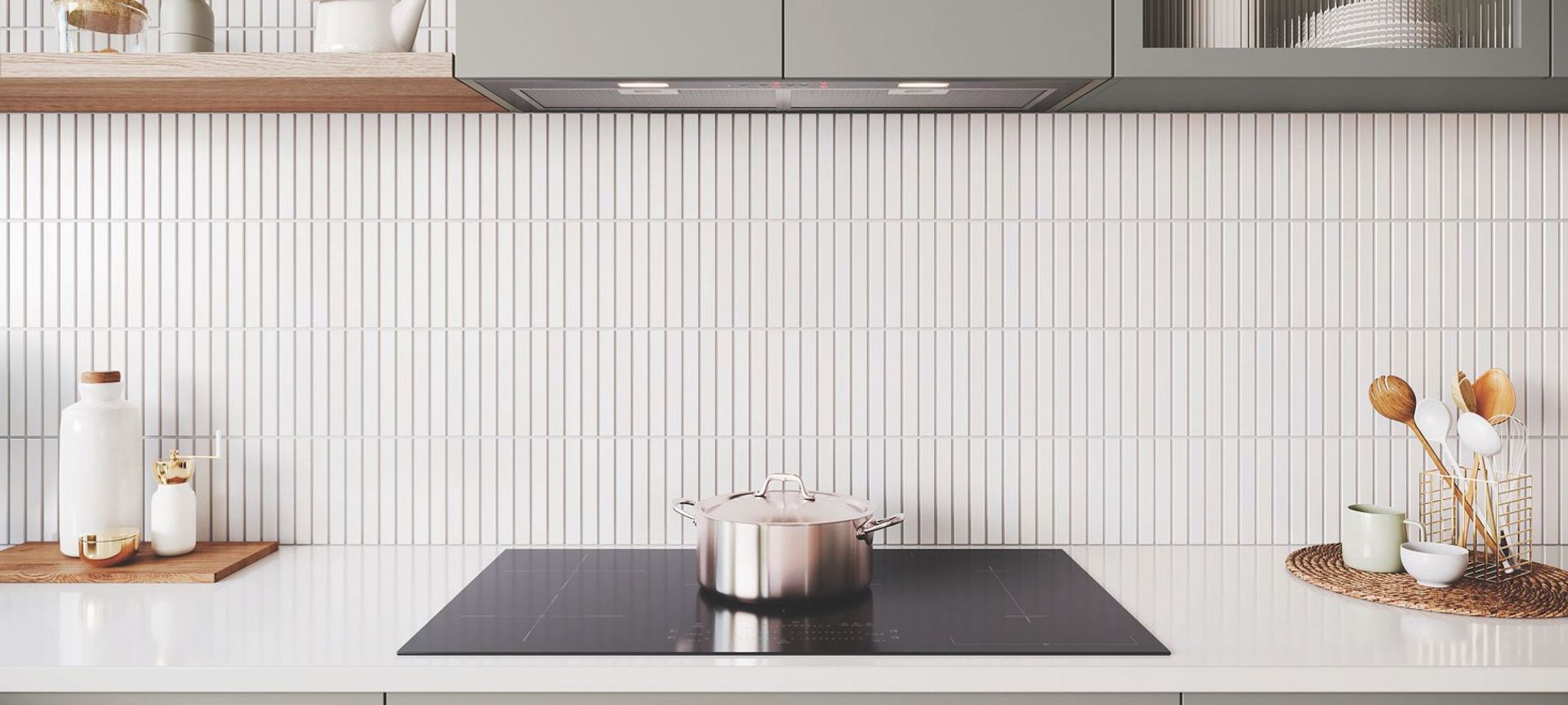The benefits of induction cooking
Geoff Hatton, the Owner of Designer Appliances Batemans Bay, has witnessed firsthand the significant shift in consumer preferences towards more energy-efficient and sustainable kitchen appliances within their homes. Hatton shares the benefits of induction cooktops for new projects and how to switch from gas to induction appliances in existing properties.
"One of the largest areas of interest we're seeing right now is in the switch from gas to induction cooktops," says Hatton. "This shift is particularly notable as builders have begun phasing out gas appliances as an option to meet new energy ratings, making all-electric appliances, often paired with solar energy systems, the norm in new builds."
Induction cooktops offer several advantages that have contributed to their rising popularity. "Induction cooking is not only faster but also offers a level of precision that traditional gas cooktops can't match," Hatton explains. "With advanced features like a wide temperature range and the ability to specify automatic programs based on the food type you are cooking, induction cooktops provide quicker response times and more precise temperature control."
Moreover, the efficiency of induction cooking—where the heat is generated directly in the cookware rather than through a flame or electric element—means less wasted energy and a cooler kitchen environment. This efficiency is especially appealing in today’s market, where rising energy costs and the environmental impact are top of mind for consumers.
How to switch from gas to induction cooking
Transitioning from gas to induction is not without its challenges. "It's important to consider the costs involved in decommissioning existing gas lines and installing the necessary electrical infrastructure," Hatton advises. "Running an additional power circuit for an induction cooktop can be a significant expense, depending on your home's current setup."
Despite these potential hurdles, the long-term benefits of induction cooking—both in terms of energy savings and cooking performance—often outweigh the initial investment. As Hatton points out, "The sales of gas appliances are decreasing, and we're seeing a strong move towards 90cm and larger induction cookers, which are now trending."
The leading brands are releasing low energy draw induction cooktop models that can overcome the need for upgrades to the electricity circuit... we're also seeing a lot of brighter appliance colour options like reds, yellows and blues.
Leading brands embrace induction
Leading appliance brands have been quick to respond to this shift toward induction. Electrolux, Smeg, and Fisher & Paykel have all introduced new models that cater to the growing demand for induction cooktops. The leading brands are releasing low energy draw induction cooktop models that can overcome the need for upgrades to the electricity circuit. One standout product is Falcon's 110cm Classic Deluxe Cooker, which Hatton highlights as a prime example of the next generation of kitchen appliances.
"This cooker redefines cooking flexibility with its five induction cooking zones, complete with residual heat indicators and pan detectors for added safety,” says Hatton. “It also features double electric ovens, a glide-out grill, and even a bread proving drawer, which doubles as a storage drawer."
In addition to the advances in cooking technology, the aesthetic appeal of appliances is also evolving. "Black appliances are still going strong," says Hatton, "but we're also seeing a lot of brighter options like reds, yellows, and blues, particularly in Smeg's Portofino range."
Future-proofing with energy-efficient appliances
Looking beyond cooktops, Geoff Hatton emphasises the importance of energy efficiency across all kitchen appliances. "We're seeing new models with incredibly high star ratings," he notes. "Haier, for example, has released a fridge with an 8-star energy rating—the highest in Australia. This energy efficiency is crucial for future-proofing your home, especially considering the long-term cost savings."
These high-efficiency fridges, often featuring inverter compressors, significantly reduce energy consumption. "Over the life of a fridge, this can have a big impact on your total energy bills," Hatton explains. "Given that a fridge is an appliance that runs non-stop, quietly in the background, choosing a model with a high energy rating can make a real difference."

Embracing the future of kitchen design
As the industry pivots from gas to induction, Designer Appliances Batemans Bay are at the forefront of these changes, helping customers navigate the transition to more sustainable and efficient kitchen solutions. Whether it's the precision of induction cooking or the long-term savings of energy-efficient fridges, the future of kitchen design is about embracing new technologies that offer both performance and sustainability.
For those looking to future-proof their kitchens, Hatton advises, "Invest in appliances that not only meet your current needs but also align with the trends we're seeing towards greater energy efficiency and lower environmental impact. It's an investment that will pay off for years to come."
To view the extensive range available from Designer Appliances Batemans Bay, head to the showroom at 2 Cranbrook Road, Batemans Bay or contact Designer Appliances Batemans Bay on ArchiPro today.

